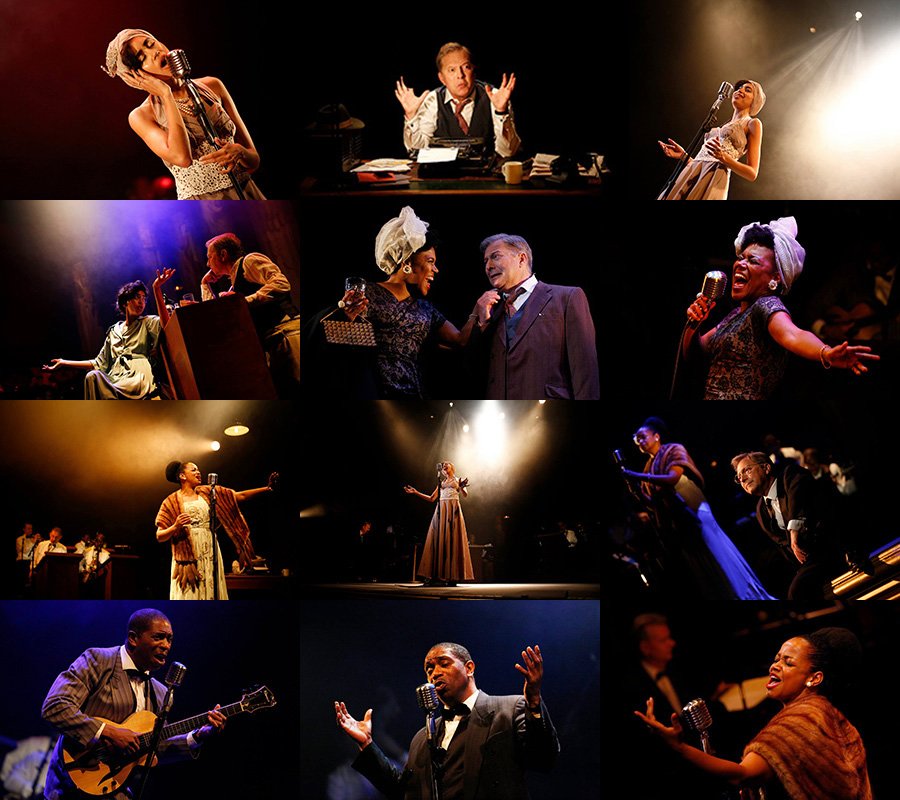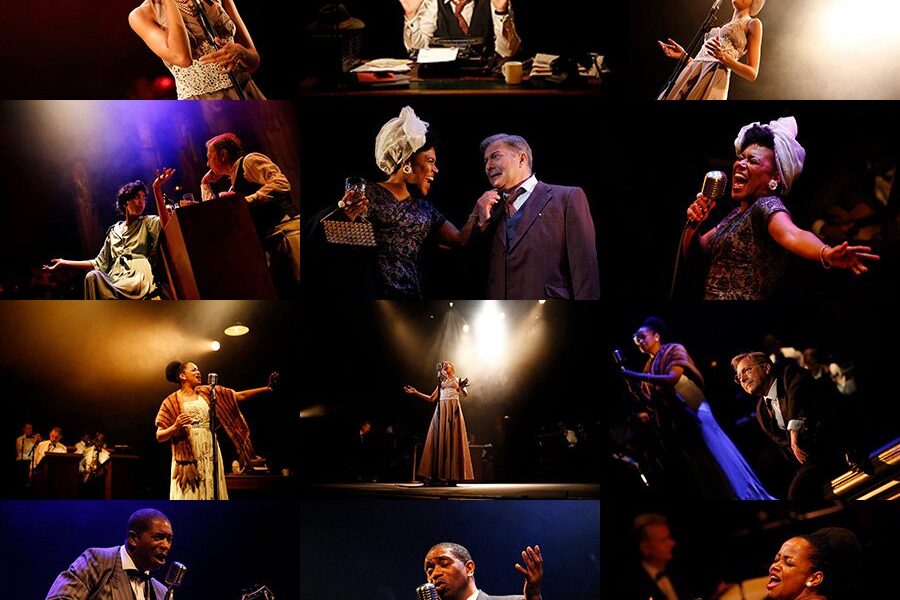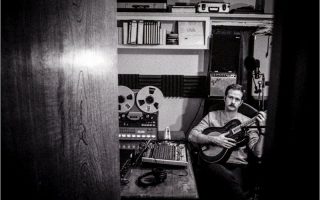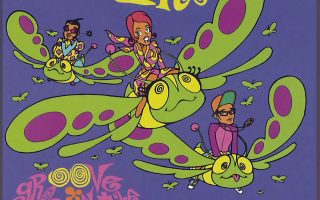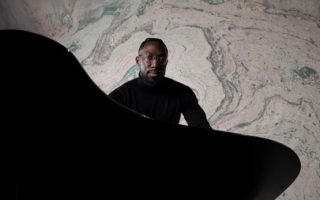May 2023 marked the tenth anniversary of the founding of the Copasetic Foundation. What began as an informal vehicle for jazz and related music words and music productions has grown to become an established, non-profit collective that creates and produces live music and theatre shows, to promote the understanding and appreciation of jazz and related music via live performance, recording, and electronic media.
The Foundation is run by a board of volunteers co-ordinated by the secretary, Alex Webb, who told me, “The idea was in gestation for a while. I had found I was creating, with some like-minded musicians and vocalists, projects which were more than just gigs; things with narrative, leaning towards theatre. So, it was a bit like building a production house. And part of it was to create a funding vehicle for those projects.
I’ve long thought that although a lot of people out there either don’t know about jazz or actively dislike it, they are often interested in the stories of the amazing men and women who made the music – the human-interest side. That was another spur to the kind of projects we’ve created over the last decade.’
I asked Webb about the name, and he explained, “The Copasetics was a social club founded by Billy Strayhorn, among others, in 1950s New York. The word was already out there. It is also, according to Max Decharne’s Dictionary of Hipster Slang ‘the highest compliment in the hep world.’”
Copasetic Foundation’s specialty is putting on words and music shows and music theatre pieces about jazz history. Shows centre around particular themes, including great musicians and episodes of jazz and popular music history. Their first production was in 2009 titled, ‘Old, New, Borrowed and Blue’ which explored jazz and blues songwriting with the help of leading UK vocalists Ian Shaw, Liane Carroll, and Tammy Weis. It was performed in London at the Royal Opera House in Covent Garden, Paul Hamlyn Hall, and the Blackheath Halls.
For the 2010 London Jazz Festival, Webb, together with arranger Frank Griffith, created a words and music show about Duke Ellington’s co-composer Billy Strayhorn, featuring Griffith’s nine-piece band and vocalists China Moses and Alexander Stewart. In 2015, for Strayhorn’s centenary year, the show was revived for the festival. ‘Lush Life: The Songs of Billy Strayhorn’ was staged at the Cadogan Hall with a ten-piece band and the participation of vocalists David McAlmont, Sandra Nkake, and Allan Harris.
In 2013 Webb created a multi-media show with the film workshop Bebop Productions about the life of jazz musician Charlie Parker, which played at the Purcell Room as part of the London Jazz Festival. ‘Charlie Parker on Dial’ used projections of archive photographs as well as bespoke abstract imagery and a spoken narrative by Sirena Riley to tell the story of the two years (1946-7) Parker was with the Dial record label. The show featured alto saxophonist Nathaniel Facey and trumpeter Freddie Gavita, playing Webb’s arrangements. It received excellent reviews.
Over the past decade, Copasetic Productions have featured a stellar line-up of musicians and vocalists and staged numerous productions – some are listed in the ‘take away facts’ at the end of this article.
The activity of the Copasetic Foundation is not limited to productions. It engages in education and offers music business seminars and business coaching for young musicians. Webb brings his experience as a senior lecturer in music and event management at university level, organising seminars for Tomorrow’s Warriors students, and organising and lecturing at the 2019 edition of the Take Five residential programme for Serious Ltd to these events. The Foundation also calls on expert advice from many areas of music including live promotion, marketing, press, PR, and music publishing.
With such a diverse range of projects and activities, I asked Webb whether he felt there were tangible differences the Foundation had helped create. He replied, “That’s a hard one. We’ve created a lot of work for musicians, but I can’t say we’ve really changed anything on the scene. I do think we’ve done some audience-building, which has to be a good thing. And some important people had their first, or at least very early, gigs for us – Cherise, Camilla George, Nathaniel Cross, and Melanie Charles in the US.”
I asked Webb where he considered the future of live music and projects was going and he commented, “The live scene will continue to be tough, and being more cut off from Europe by Brexit hasn’t helped, but I think jazz can survive anything and a lot of the worries about the effect of AI on music won’t apply. I believe jazz is pretty much AI-resistant. The experience of being in a room while music is created or at least extemporised in front of you, in real-time, I don’t think that will ever die.
I’d like to get a Copasetic project back into a London theatre again – I’m working on it but, like music, theatre took a hell of a beating in the pandemic and there isn’t much appetite for risk. But I’m excited to be working with two excellent young jazz vocalists – Ineza, with whom I’ve created a show of entirely female-written (or co-written) repertoire with a great female band, and Lulu Pierre, who has it in her to be a jazz singer in the classic mould.”
So, the first ten years have proved productive and the Copasetic Foundation is respected and established. Here’s to the next ten years and more.
Take away information.
Production locations:
Queen Elizabeth Hall, The Purcell Room (Southbank), Tricycle Theatre, (Kilburn, London) Leicester Square Theatre, Theatre Royal Stratford East, Ronnie Scott’s Club, Pizza Express, St James’ Theatre Studio, the Hideaway (Streatham), JW3,(Finchley), Snape Maltings ( Woodbridge, Suffolk), Scarborough Spa Theatre, Crazy Coqs ( London), Sunset-Sunside Paris, 59E59 Theaters New York, and other venues.
Albums produced or co-produced by the Foundation.
- Call Me Lucky by Alex Webb &The Copasetics (2016, with Splash Point Music Ltd)
- The Last Bohemians by McAlmont and Webb (2019, with Lateralize Ltd)
- British Standard Time by Alex Webb with Jo Harrop, Luca Manning, Tony Momrelle, and Carroll Thompson (2022, with Lateralize Ltd)
Some of the musicians associated with the Foundation.
Drummers: Sophie Alloway, Moses Boyd, Shirazette Tinnin, Shaney Forbes
Saxophonists: Denys Baptiste, Nathaniel Facey, Tony Kofi, Camille Thurman, Frank Griffith, Alex Hitchcock
Trumpet players: Benny Bennack, Andy Davies, Freddy Gavita, Byron Wallen, Sheila Maurice-Grey, Sue Richardson
Bassists: Andrew Cleyndert, Gary Crosby, Mimi Jones, Neville Malcolm
Trombonists: Rosie Turton, Nathaniel Cross, Winston Rollins
Guitarist: Nigel Price
And there are others.
Some vocalists who have taken part in productions.
Cyrille Aimée, Ciyo Brown, Melanie Charles, Cherise, Allan Harris, Jo Harrop, Gwyneth Herbert, Ineza, David McAlmont, Tony Momrelle, China Moses, Vimala Rowe, Alexander Stewart, Carroll Thompson, Charenée Wade, Ayanna Witter-Johnson
Popular shows include
Cafe Society Swing, Fever with Jo Harrop,
A Portrait of Cannonball,
Billie Holiday at Carnegie Hall,
Quintet Blue,
British Standard Time,
Charlie Parker on Dial,
Women’s Words, Sisters’ Stories with Ineza,
Stormy: The Life of Lena Horne,
Torch Songs with Jo Harrop, McAlmont & Webb: The Last Bohemians,
Seven Ways the Blues Can Change Your Life
Strayhorn The Songwriter.
- Amount paid to musicians £160,000.
- Number of Copasetic productions presented: 280.
- Amount raised in grants and donations: £20,950.
- A simplified version of ‘Charlie Parker On Dial’ is available for club and festival work
For more details:
Education copaseticfoundation@outlook.com
For shows: Show dates | (copaseticfoundation.org)
Everything else copaseticfoundation.org
Book reference ( see above) : Mark Decharne Straight From The Fridge, Dad -Dictionary of Hipster Slang (No Exit Press 2009)
